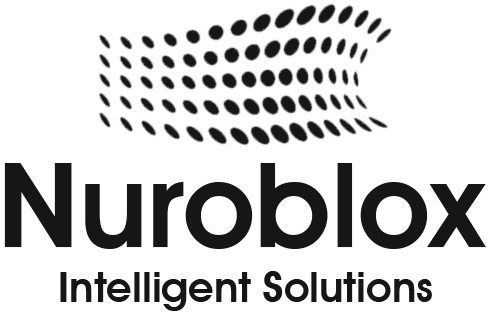Benefits of Using iPaaS for Digital Transformation
As organizations push forward with digital transformation, one of the biggest roadblocks they face is fragmented systems and disconnected data. Modern businesses rely on a growing ecosystem of cloud apps, legacy systems, and data sources, yet these tools rarely work together seamlessly.
This is where iPaaS (Integration Platform as a Service) becomes essential.
iPaaS simplifies and accelerates integration by connecting applications, automating workflows, and ensuring data flows smoothly across your business. It’s not just a tech solution it’s a strategic enabler for companies looking to move faster, work smarter, and scale with confidence.
In this blog, we’ll explore the key benefits of using iPaaS and how it supports end-to-end digital transformation.
The Role of iPaaS in Digital Transformation
Digital transformation is about more than adopting new technologies; it’s about creating a connected, intelligent, and agile business. But this vision often runs into a major obstacle: siloed systems that don’t communicate effectively. Legacy platforms, modern SaaS tools, and on-premise applications all generate valuable data, yet without integration, that data remains underutilized.
iPaaS (Integration Platform as a Service) addresses this challenge by acting as the connective tissue between systems. It allows organizations to integrate data, applications, and processes across cloud and on-premise environments quickly, securely, and at scale.
With iPaaS, businesses can:
- Break down data silos to create unified views across departments
- Automate cross-platform workflows that save time and reduce errors
- Respond faster to change, thanks to flexible, scalable integration
- Empower both IT and business teams with user-friendly, low-code tools
In short, iPaaS provides the integration backbone that enables digital transformation to happen—faster, smarter, and more effectively.
Top Benefits of Using iPaaS
Implementing iPaaS (Integration Platform as a Service) can significantly accelerate and simplify your digital transformation journey. From streamlining operations to enabling real-time data flow, here are the top benefits businesses gain by adopting iPaaS:
1. Seamless Integration Across Systems- iPaaS connects cloud-based and on-premise applications, enabling smooth data flow across the organization. This eliminates manual data transfers and fragmented systems, ensuring real-time synchronization between platforms like CRMs, ERPs, marketing tools, and more.
2. Faster Deployment and Time-to-Value- With pre-built connectors and drag-and-drop interfaces, iPaaS significantly reduces the time and effort needed to set up integrations. Businesses can launch new services and adapt to changes more rapidly, key to staying competitive in a fast-moving digital world.

3. Automation of Workflows- iPaaS allows you to automate repetitive, rule-based tasks across applications. From onboarding customers to syncing financial data, automation reduces human error, boosts efficiency, and frees up teams to focus on strategic initiatives.
4. Improved Data Accuracy and Visibility- By consolidating data from multiple sources into a single view, iPaaS improves data quality, reduces duplication, and enhances reporting. This empowers better decision-making across the enterprise based on real-time, trusted data.
5. Supports Innovation and Scalability- As your business grows or your tech stack evolves, iPaaS scales with you. It allows seamless integration of new tools without disrupting existing systems, fostering continuous innovation while maintaining operational stability.
6. Enhanced Security and Governance- Leading iPaaS solutions come with built-in security features like data encryption, access controls, and compliance support (GDPR, HIPAA, etc.). This ensures secure data transmission and centralized control over your integration environment.

7. Empowers Both IT and Business Users- iPaaS often includes low-code/no-code capabilities, enabling non-technical users to build simple integrations or automate tasks without relying heavily on IT, boosting agility across departments.
8. Enables Real-Time Digital Experiences- From syncing customer data instantly to powering personalized digital touchpoints, iPaaS helps deliver seamless, real-time experiences that today’s users expect both internally and externally.
iPaaS isn’t just a backend tool; it’s a strategic enabler of digital transformation. By unlocking agility, visibility, and efficiency, it helps businesses operate smarter, respond faster, and innovate at scale.
Real-World Examples of iPaaS in Action
The true power of iPaaS is best understood through practical use cases. From streamlining operations to enhancing customer experiences, businesses across industries are leveraging iPaaS to fuel their digital transformation initiatives. Here are some real-world examples:
1. Healthcare: Connecting Patient Systems- A multi-location healthcare provider faced fragmented systems, separate platforms for patient records, appointment scheduling, billing, and insurance. Using iPaaS, they integrated all systems to create a unified patient view. This enabled faster diagnostics, real-time insurance verification, and a better overall patient experience while ensuring HIPAA compliance.
2. Retail: Omnichannel Customer Experience- A global retail chain used iPaaS to integrate its e-commerce platform, CRM, inventory system, and logistics providers. The result? Real-time inventory updates, automated order processing, and personalized marketing campaigns based on unified customer data drive increased sales and brand loyalty.
3. Education: Enhancing Student Services- A university connected its admissions, learning management, and financial aid systems using iPaaS. This allowed for seamless student onboarding, automated alerts for financial aid deadlines, and real-time course registration data, greatly improving the student experience.
Conclusion
Digital transformation isn’t just about adopting new tools; it’s about building a connected, agile, and intelligent organization. iPaaS serves as a critical enabler in this journey by simplifying integration across disparate systems, platforms, and data sources.
From improving operational efficiency to unlocking real-time insights and enhancing customer experiences, iPaaS empowers businesses to adapt and scale faster. As companies continue to embrace cloud services, automation, and AI, the role of iPaaS becomes even more essential in ensuring everything works together seamlessly.
For organizations looking to future-proof their digital strategy, iPaaS offers both the flexibility and power to drive transformation with confidence.


